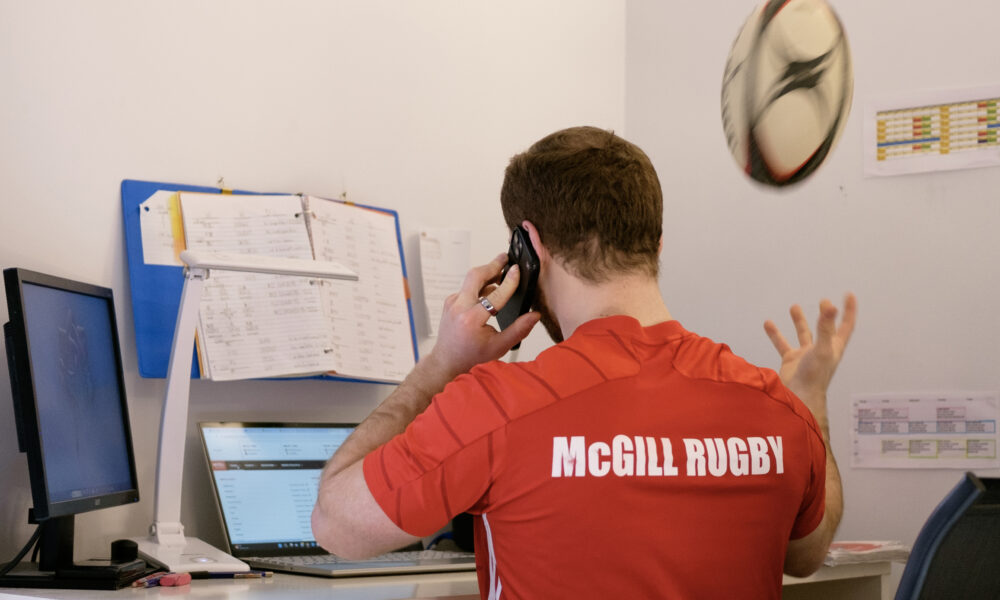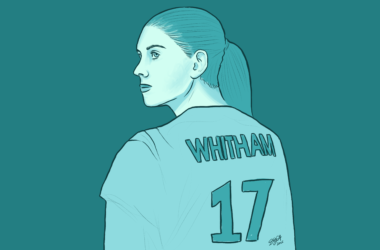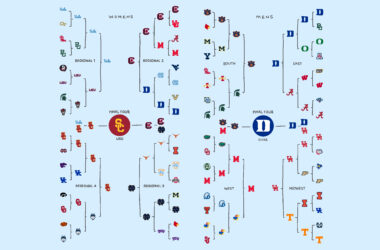On March 13, McGill kicked off its annual fundraising event: McGill24. It’s housed on the McGill Crowdfunding website, and various sports teams, clubs, and other university initiatives have donation pages detailing their monetary goal and the background of their campaign. Donations made on March 13 are matched by the university at a rate determined after the donation page has closed. McGill24 is an integral initiative for sports teams to raise funds, particularly for those with tier-two varsity status and club teams that represent the university and aspire to become varsity.
Over 20 sports teams benefit from the McGill24 event. Several tier-two varsity teams such as McGill Rowing and Martlets Field Hockey rely on fundraising efforts to cover expenses not fully met by McGill’s contribution. Club teams like Martlets Lacrosse and McGill Squash are equally as dependent on this funding, given that they are often student-run and self-funded. Unlike varsity teams, competitive sports clubs receive rare, sporadic funding from the university. Instead, they rely on contributions from their alumni networks and other donors. As such, the survival and growth of these club sports are dependent on McGill24.
Co-captain of the Martlets Lacrosse team Rachel Anderson shared that the team is fully self-funded and stretches its fees and funds raised through McGill24 to pay for their competitive season and expand its program.
Anderson remarks that McGill24 helps reduce team fees, making the Canadian national sport accessible for all students at McGill while also allowing them to travel and play in the Ontario University Athletic (OUA) events.
The Martlets Field Hockey team has a similar story to that of the Women’s Lacrosse Club.
“While Field Hockey is a varsity sport at McGill, we fall into the second tier, meaning that we are fully self-funded,” players and McGill24 ambassadors Clara Smyrski and Grace Hodges explained.
By the end of McGill24, the field hockey team raised $9,310—70 per cent of its goal. As the only Quebec team playing in the OUA, the Martlets face particular challenges. Hodges and Smyrski elaborate that for the past few seasons all of their games have been away games, meaning they spend every weekend travelling to Ontario, and costs tend to add up.
Hodges adds that McGill24 is vital in keeping team fees down and making sports more accessible. Funds raised through McGill24 are used to help subsidize travel costs and buy new equipment for the team.
Smyrski explains that the campaign also allows the team to host clinics at McGill and creates exposure for the sport in Quebec.
Furthermore, another varsity sport that depends on the success of McGill24 is the McGill Rowing team. Varya Kataria, Head Chair of Fundraising for McGill Rowing, explains that as a varsity tier-two team, rowing receives partial funding from McGill; however, they depend on funds raised through McGill24. Rowing is infamously costly, and the team costs stem primarily from buying boats, entering regattas, and paying for practice space at the Olympic Basin.
Following the pattern of high costs, rowing crew fees are 700 dollars per season but ultimately vary depending on funding efforts. This year the team’s goal was to make the sport accessible by bringing down team fees. Kataria explains that a portion of the McGill24 funds goes towards growing their endowment fund, with the future goal of being financially independent from McGill Athletics’ funding.
“If we can offset [crew fees] by anything then it makes the sport more accessible,” Kataria elaborated. “We have financial support for athletes who can’t pay the full crew fees, but that is through the McGill24 money. It’s so important that we keep that money there so that we are not getting rid of good rowers just because they can’t pay the crew fees.”
As many of the teams who participated in the McGill24 campaign have revealed, their success and expansion of athletics at McGill is often dependent on fundraising and crowdfunding efforts. Without contributions from family, friends, and generous alumni, many club teams like Martlet’s Lacrosse and McGill Squash can’t continue to grow and achieve their goals.
As Anderson concluded: “If we [McGill Club Teams] don’t have money, then we won’t have a season.”









